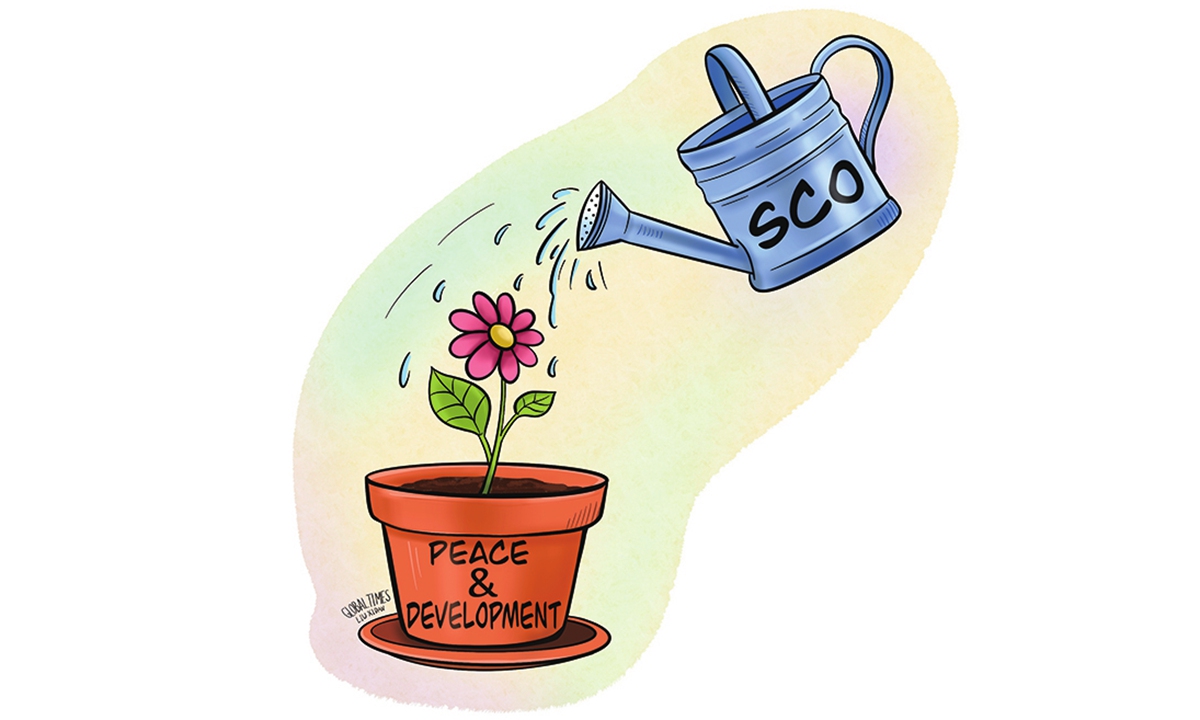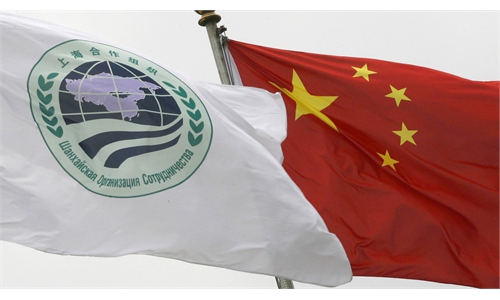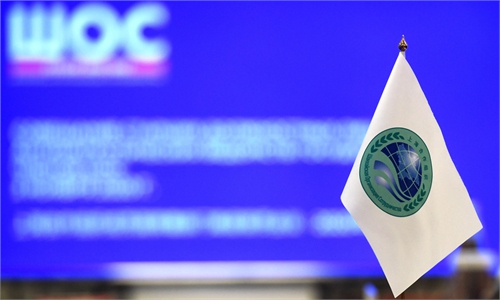
Illustration: Liu Xidan/GT
Summits and other events of the Shanghai Cooperation Organisation (SCO) almost never resemble a gathering of countries that always think alike and just agree with each other on everything, such as G7.The reason is that this is an organization of truly sovereign states, and each of them legitimately values its own national interests and preferences. This is what distinguishes the SCO from Western organizations or other traditional institutions. "The G7 or NATO are much simpler structures. In these alliances, everyone is subordinate to one leader. The festive appearance of regular meetings is due to the fact that they only formalize the decisions made in advance in Washington.
All the other participants have only to come and show their solidarity with what the sole leader has already decided. The SCO is completely different and has been developing for over 20 years around completely different principles. The question is, what type of international cooperation is the most viable and interesting for most states in the world?
The past international order has shown itself to be insufficiently effective. The SCO, as well as BRICS, emerged under the total domination of the West over the international agenda. The successful end of the Cold War for the United States and Europe allowed them to concentrate on creating an international order that serves only the interests of the West. It is impossible to argue with this, and the task of large sovereign states is not to destroy the existing order, but to restructure into a new and more just one, which is the main condition for international stability in the coming decades.
A unique feature of the SCO is that the principle of the distribution of power among its members is not at the heart of this structure. When the SCO was created back in 2001, none of the individual founding member-states could attribute the leading role in making the rules by which this institution should work. The SCO has no "pillar" in the form of a single power whose power and authority force everyone to comply with internal rules of organization. These rules are created every day and will inevitably be very flexible. What is known as The Shanghai Spirit is defined as mutual trust, mutual benefit, equality, mutual consultation, respect for the diversity of cultures and the pursuit for joint development.
Based on the Shanghai Spirit, the SCO works on the common interests of its members, which is based on their national preferences. However, we don't know any examples where this common interest has been about competition or struggle with other alliances or individual states. In this sense, the SCO is a unique experience of an organization that does not fence off its members from the rest of the world with a wall of "corporate political interest."
The SCO is also not based on a balance of power, which has always been the foundation of the orders and institutions created by the West. In other words, within the SCO, no one holds anyone back or acts as a counterbalance to one another. Thus, in the case of the SCO, we are dealing with a completely new type of organization. And it is not easy to predict with certainty what will be the practical dynamics of its development. It is a movement in conditions where a new world order is just being created. And each step of the SCO is also a completely new experience, unknown from the previous history of international politics.
In this respect, the SCO cannot be considered an international institution as they are traditionally explained in the textbooks with conventional theories of world politics. It is therefore changeable in everything except its goal of ensuring security and cooperation in Greater Eurasia. Because of that, the SCO differs from NATO or the G7, which are exceptionally predictable in everything. Now even their goals are clear - it is the containment of the development of China and Russia.
This time, the regular SCO summit will take place online. Nevertheless, all leaders of the SCO states are expected to address the summit, as well as welcome Iran as a full-fledged member of this organization. Other important decisions are also expected to promote regional security, economic development and cultural and humanitarian exchanges. The summit will thus have both a working and ceremonial character.
This, of course, might be upsetting for the Western media who are used to bright pictures and general unanimity. But let's face it, the effectiveness of cooperation among so many sovereign countries is much more important than flashy representations for the world's media. Especially since at the last SCO summit in Samarkand, Uzbekistan, we had plenty of opportunities to see the ceremonial meetings around the round table. And in 2024, Kazakhstan will be a convenient place for all heads of state and governments to meet in person.
A world based on simple solutions and unified leadership showed that it is unstable and holds general development. We do not yet know exactly how the international organizations will look in the future. But we definitely do know that they should not be based on the subordination of all to the interests of a single state. And this means that the new order will be much more complex and demanding for careful diplomacy, with lots of restraint and courtesy to the interests of others.
The author is Moscow-based Valdai Club program director. opinion@globaltimes.com.cn


